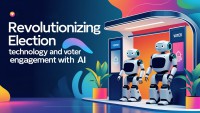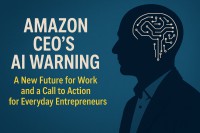Webinar Monetization: How to Turn Engagement into Income
In the digital age, webinars are no longer just tools for education and engagement—they're powerful engines for revenue. Whether you're a coach, consultant, small business owner, or part of a larger organization, learning how to monetize your webinars can transform your content from a cost center into a consistent income stream.
Why Monetize Your Webinars?
Webinars are uniquely positioned to generate revenue because they combine real-time engagement with valuable content. When done right, they:
-
Build trust with your audience
-
Showcase your expertise or offer
-
Create urgency through live interactions
-
Open the door to product sales, memberships, and partnerships
But many hosts struggle to turn views into dollars. Let’s explore how to fix that.
5 Proven Webinar Monetization Strategies
1. Sell Products or Services
One of the most direct ways to monetize a webinar is to present a relevant product or service at the end. This works best when the content naturally leads to the offer—often known as the “value-first” method.
Examples:
-
A health coach offering a wellness plan
-
A SaaS company demoing features, then offering a limited-time discount
-
An author promoting their new book
Tips:
-
Include a compelling call-to-action (CTA)
-
Offer a special price or bonus for webinar attendees
-
Use urgency (e.g., “only available for 24 hours”)
2. Use Affiliate Marketing
Promote tools, services, or products you trust and earn a commission when attendees purchase through your affiliate link. This is ideal if you don’t have your own product—yet.
Tips:
-
Choose offers that complement your webinar topic
-
Use custom tracking links
-
Be transparent—audiences appreciate honesty
3. Grow Your Email List & Nurture
Sometimes, the real value of a webinar isn’t the immediate sale—it’s the long-term relationship. Capture leads through registration and use automated email sequences to:
-
Educate further
-
Offer upsells
-
Promote future webinars
Monetization happens through backend funnels, not always during the live session.
4. Charge for Access
If your content is premium or niche, charging a registration fee makes sense. You can also sell replays as a digital product.
Common Models:
-
One-time fee (e.g., $49 per webinar)
-
Monthly subscription (access to ongoing series)
-
Tiered pricing (live access vs. replay + bonus content)
5. Automate Monetization with Tools Like The EventBot
Advanced tools like the EventBot by Pamper Me Network allow you to automate monetization. Here’s how:
-
Pre-register guests and earn micro-revenue (e.g., $1 per registrant)
-
Enable tipping, subscriptions, and content sharing rewards
-
Convert attendees into affiliates automatically
-
Run follow-up sequences without lifting a finger
This “set-it-once, earn-forever” model blends AI, CRM, and social rewards technology to help you focus on content while the system drives sales.
How Much Can You Earn With the EventBot - Webinar Guest List Builder AI?
Here’s a projected 6-month income table showing how much you can earn using the EventBot, based on typical monetization features like social rewards powered registrations, newsletter revenue, membership upgrades, and provision of outreach services:
EventBot Earnings Projection: 6-Month Outlook
| Revenue Source | Monthly Units | Rate per Unit (USD) | Monthly Revenue | 6-Month Revenue |
|---|---|---|---|---|
| ✅ Free Guest Registrations | 100 | $1.00 | $100 | $600 |
| ✅ Newsletter Monetization | 100 subscribers | $0.30 – $3.00 | $30 – $300 | $180 – $1,800 |
| ✅ EventBot Upgrades | 10 users | $90.00 | $900 | $5,400 |
| ✅ Outreach Automation Add-on | 10 users | $50.00 | $500 | $3,000 |
| ✅ Content Revenue (Tips, Ads, etc.)* | Variable (est.) | $50 – $200 | $50 – $200 | $300 – $1,200 |
Estimated Total Earnings Over 6 Months:
-
Minimum Estimate: $7,460
-
Maximum Estimate: $12,000+
Note: These projections are conservative and based on minimal effort. With more traffic, sharing, or content volume, earnings can scale significantly.
Earnings Calculator
Bonus: What You Need to Succeed
To successfully monetize webinars, you’ll need:
-
A strong topic that solves a real problem
-
Engaging presentation skills
-
Follow-up systems (email, SMS, etc.)
-
Tracking and analytics to optimize performance
And most importantly, a mindset shift—from “free content giveaway” to “structured revenue strategy.”
Webinars are one of the most effective digital assets you can create. With the right structure, tools, and strategy, every session can generate revenue—immediately and passively.
Whether you’re hosting live sessions weekly or turning pre-recorded content into evergreen funnels, webinar monetization isn’t just possible—it’s essential in today’s economy.
Want help setting up a monetized webinar system?
Ask about Pamper Me Network’s EventBot to turn your next session into a revenue-generating engine—automatically.
%20(1).jpg)



















